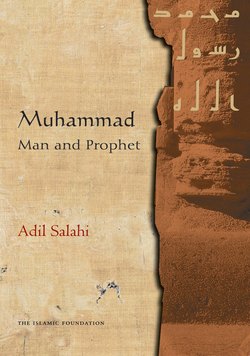Читать книгу Muhammad: Man and Prophet - Adil Salahi - Страница 5
На сайте Литреса книга снята с продажи.
ОглавлениеPreface to the Present Edition
THIS EDITION BENEFITS by a major change introduced in Chapter 26, where a certain event is reported in a new light that totally negates what has been held as true by most people, including the present author. The case of the Qurayzah Jews and the judgement passed on them when they surrendered to the Prophet is thus placed under fresh scrutiny. The majority of sources on the history of the period report that the Qurayzah men were executed and their women and children were taken slaves. Across the centuries, authors were at pain to explain that this was the right judgement, considering their treachery that could have led to the eradication of Islam and the Muslim community. I previously followed in the same tradition, arguing the same case. Now I praise God for enabling me to see the event in question in its true light.
It is not an easy task to go against traditional wisdom in explaining events of history, particularly when you stand at odds with your most reliable sources. In the case of the fate of the Qurayzah Jews, all sources, old and contemporary, rely on Ibn Ishaq’s report. They practically produce it verbatim. Ibn Ishaq himself was a scholar of high merit, but he was not immune to misjudgement. In this case, he is clearly in the wrong. Islam stands for absolute justice to all. It does not accept that a single person may be treated unfairly under any circumstances. The Qur’an lays down a great principle: “Never allow your hatred of any people to lead you away from justice. Be just, this is closer to righteousness.” (5: 8) This is coupled with a similarly important principle: “No soul will bear the burden of another.” (35: 18) Thus, collective punishment, whereby a group of people are punished for the crimes committed by some of their numbers, could never be sanctioned. No consideration of political expediency can outweigh the importance of justice, even when dealing with our most hostile enemy. The injunction to uphold justice is repeated many times in the Quran and by the Prophet.
I am indebted to a scholarly paper by the late Professor Walid Arafat which questions the case and throws doubt on the report by Ibn Ishaq. This set me on a course of investigating the case anew. My findings are outlined in Chapter 26 of this edition. I seek God’s forgiveness for not undertaking such an investigation earlier, and I praise Him for enabling me to clarify the picture concerning this event.
The other major change in this edition is the appendix concerning [A’ishah’s age at the time of her marriage to the Prophet. This has always been a cause of unease for Muslims. They try to explain it in different ways, but I have always felt that the common notion concerning her age is wrong. I have only put in writing what I have long argued in private and public discussions.
| London | Adil Salahi |
| December 2008 |
